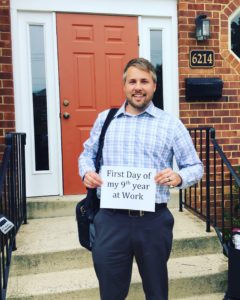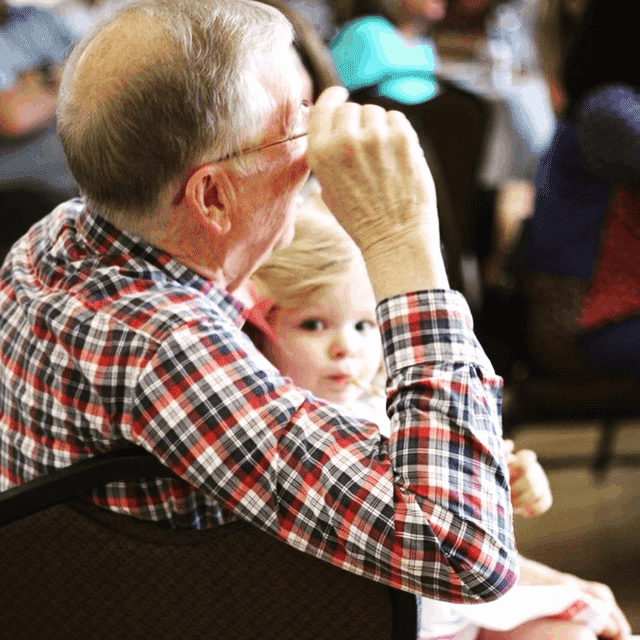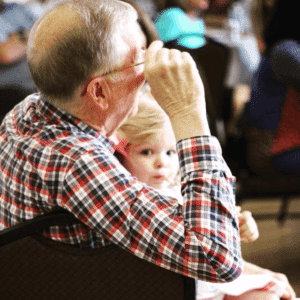Day 1: Preparing Our Hearts As we seek to turn...

Morning Meditation: Three Truths Jesus Taught About Bearing Fruit
“Remain in me, as I also remain in you. No branch can bear fruit by itself; it must remain in the vine. Neither can you bear fruit unless you remain in me. I am the vine; you are the branches. If you remain in me and I in you, you will bear much fruit; apart from me you can do nothing.” John 15:4-5
I grew up in a pastor’s home. This meant many things, not the least of which was a certain familiarity with spiritual vocabulary. For instance, the use of the phrase “fruit bearing” was a normal part of language for me. I remember giving my high school basketball coach a card at the end of our season thanking her for a very fruitful year. This was so weird. What high school junior calls a basketball season fruitful? Well, me. Totally me. Because bearing fruit is a concept I was raised on, and this carried over into my basketball seasons, apparently. The word fruitful might not have gotten any more mainstream since my high school days, but it’s a word I pray will define my life.
When Jesus talks about bearing fruit, I believe He’s talking about the impact our lives are meant to have.
This past weekend I was in Michigan speaking at a retreat when I happened upon this apple tree. (Please appreciate my climbing skills). One side of the tree’s branches draped over a lake, bombing gorgeous apples into the water. The ones dangling over land and within reach had vanished to other visitors. In my zeal to not leave the state of Michigan without picking one fresh apple I deftly shimmied up a branch. (This was actually not at all how this went, but just imagine me light and agile.) This prompted a reflection on John 15, and three things I learned about bearing fruit.
1. Remain in the Vine
One of the things that strikes me about a fruit tree is its ability to stand so quiet, without strain or mayhem, while getting things done. I mean, how does a branch produce fruit without the swirl? Do you know what I mean by the swirl? It’s the striving and chaos and energy I often leave in my wake when trying to make things happen, sometimes even for God. In this passage Jesus presents us with an entirely different way.
The word “remain” (abide or dwell) in the Greek means: “not to depart; to continue, to be present; to be held, kept, continually; to continue to be, not to perish, to last, endure” (Vines). The idea is that this is a very restful place to be. If we as the branches remain in Him as the Vine, we draw energy and marrow to produce the fruit He longs to bring about in our lives. It’s all about our attachment and connectedness to Him. This doesn’t mean our lives will be void of activity or the expending of energy, simply that we’re able to draw everything we need to bring forth meaningful fruit that will last. As restfully as a tree beside still waters, because have you ever seen an apple tree freaking out?
2. Embrace The Pruning
Earlier in the chapter Jesus points out that God the Father is the One who prunes our lives so we will be even more fruitful (vs 2). The problem for me, historically, has been quite simple: I don’t always enjoy the pruning process, turns out. Maybe you’re in one of those places where God is refining your character by cutting out a massive tumor of greed or pride. The disease of bitterness is being scraped back. Perhaps that particular false god you were really quite attached to just got lopped off, plummeting to the ground in a most unpleasant way. As I’ve learned a bit about gardening over the years, pruning spares the nourishment of the vine for the branches that are most viable. If God is paring back an area that is presently painful, it is only for the bearing of more fruit—A life of greater impact for His glory (vs 8). So let God do His work and have His way in your life. Don’t resist the hard good He is doing.
3. Expect A Harvest
When Jesus says that if we remain in Him we will bear fruit, this is a promise. Part of the beauty of a fruit tree is that its prolific bounty is an annual and rather predictable offering. No one on the camp grounds seemed all that taken with the fact that this tree had fruit hanging from its branches. In October, the Michigan apple is to be expected. You can count on it. Essential pieces of our existence—like apple cider, apple pie and cider donuts—depend on this reliable reality. How much more can we rely on the spiritual premise that remaining in Jesus means bearing fruit that will last? In other words, as we abide in Christ we can confidently expect the fruit He will bring about.
May we abide in Him so our activity is peaceful and not full of strife. When the Gardener sharpens his shears, may we let Him have His loving way with us. And as we dwell in the Vine, let us expect the certainty of bearing fruit. Fruit that will last.
Fruit more sure than the autumn apple.

A Place at the Table For You

HOLIDAY HOSTING HACKS THAT FREE YOU TO SERVE
Entertaining during Thanksgiving and Christmas...
Episode #7: Love People and Pass It Around
Episode #7 Food stylist and photographer Teresa...
Episode #6: Beautifully Imperfect Food
Episode #6 Kelly and Regina are joined today by...

WHAT THE FAMILY DINNER TABLE GAVE ME
Filmmaker and journalist Miriam Weinstein once...





















